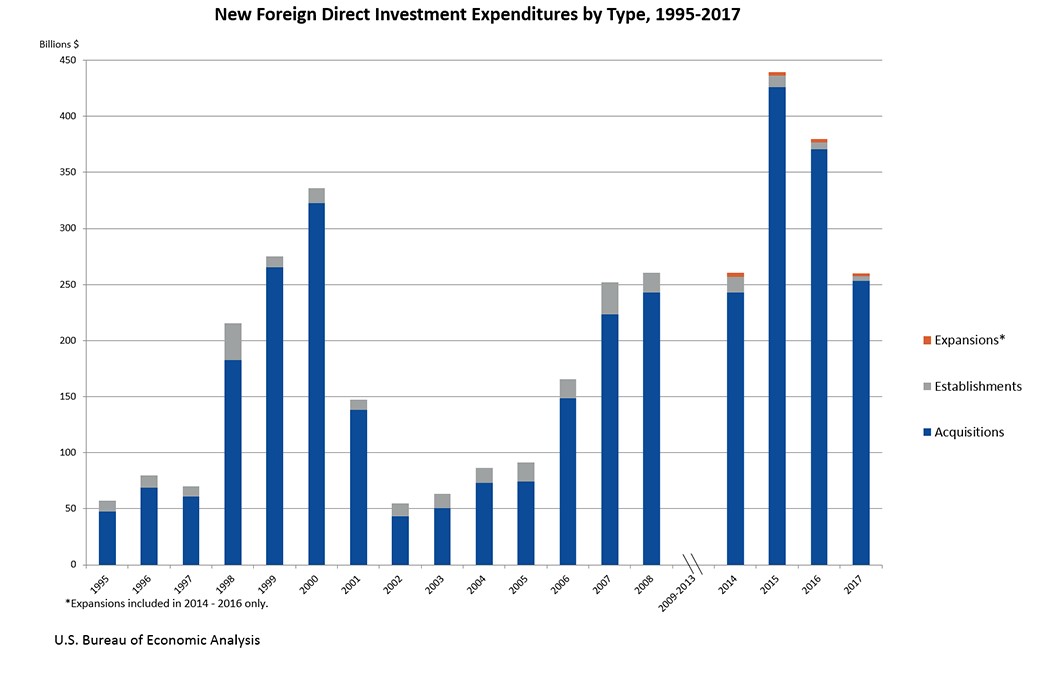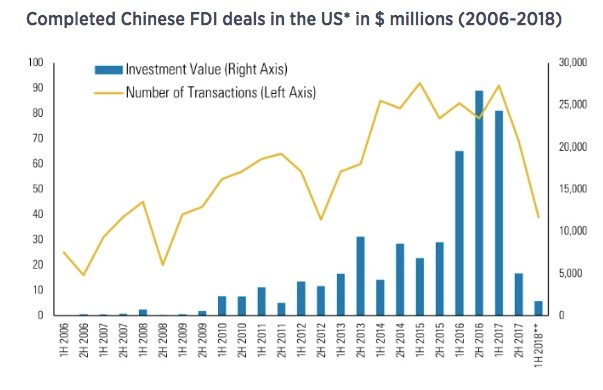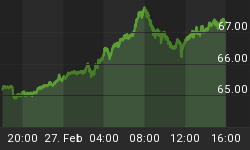American companies saw a worrying 32-percent decline in the amount of money coming in from overseas foreign investors last year, and this year could end up seeing a bigger foreign cash drought in the atmosphere of trade war fear and restrictions targeting the Chinese.
According to the U.S. Bureau of Economic Analysis, in 2017, foreign investors dropping $259.6 billion on acquisitions, launches and business expansions—a dramatic reduction from the $439.5 billion they spend in the U.S. in 2015. The additional 32-percent decline from 2016 to 2017 saw $120 billion shaved off the amount.
And it’s also well below the annual average of $359.9 billion for 2014-2016.

(Click to enlarge)
In terms of where that FDI went last year, acquisitions accounted for the bulk, with $253.2 billion spent, while $4.1 billion went to new business establishment and $2.4 billion went to expansion efforts.
Geographically, Canada was the biggest contributor to FDI in the United States in 2017, considering the ultimate beneficial owners, followed by the UK and Japan. Canadian UBOs contributed $44.2 billion, while UK UBOs accounted for $40.9 billion, Japanese accounted for $34 billion and French, $23.1 billion.
And the biggest portion of that money went to the State of California, which took in $41.6 billion, followed by Texas with $39.7 billion and Illinois, with $26 billion. Related: The Three Horsemen Of The Bitcoin Apocalypse
In terms of industry, manufacturing saw the biggest FDI, taking in $103.7 billion, or 40 percent of the total, with the food segment seeing the biggest percentage point. Larger FDI expenditures were also registered in information ($25.7 billion), and real estate/rental/leasing, $17 billion.
For now, the drop in FDI has nothing to do with Trump’s trade war. In fact, FDI is down the world over, with the OECD putting the decline at 18 percent in 2017.
In a statement carried by Deutsche Welle, the OECD said “the high levels in 2015 and 2016 were partly due to financial and corporate restructuring, but it is also likely that the possibility of tax reform decreased incentives to engage in these types of translations in 2017”.
In that same vein, Trump’s tax reforms could, theoretically, lead to an uptick in FDI in the US this year, but trade war fears may nullify that.
In the meantime, as a potential barometer for 2018, Chinese investment in the U.S. is said to have fallen by a massive 92 percent from January to June this year, according to the Rhodium Group research firm, as cited by CNBC.
In the first five months of this year, according to Rhodium, the U.S. has seen only $1.8 billion in Chinese investments and acquisitions, while net Chinese deal flow to the U.S. was in the red—to wit, -$7.8 billion.
In charts, it looks like this:

(Click to enlarge)
Source: Rhodium Group, via CNBC
While China is trying to limit capital flight and put a cork in over-leveraged companies, the Trump administration has scuttled over $2 billion in acquisitions this year with increased scrutiny of deals over national security concerns.Top of Form
“The pipeline of pending M&A transactions remains thinner and the average transaction value far lower than in previous periods,” Rhodium said in the report.
By Josh Owens for Safehaven.com
More Top Reads From Safehaven.com:
















